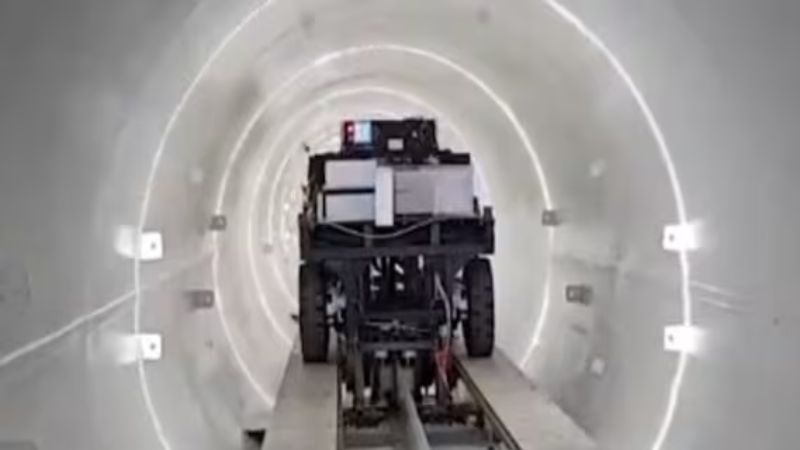India has taken another major step in transportation technology. It will now conduct the tests for the hyperloop test track built by IIT Madras with support from the Ministry of Railways. The construction is of a 422-meter-long hyperloop test track that proposes to revolutionize travel over long distances. Once a success, passengers could cover a distance of 350 kilometers in just 30 minutes. This implies that the journey from Delhi to Jaipur, approximately 300 kilometers apart, can be completed in less than half an hour after the full realization of the hyperloop system.
Union Minister Ashwini Vaishnaw announced this in a post shared on the social media platform X, formerly Twitter. He cited the contribution of both the government and academia in advancing futuristic transportation.
The hyperloop project at @iitmadras; Government-academia collaboration is driving innovation in futuristic transportation. pic.twitter.com/S1r1wirK5o
— Ashwini Vaishnaw (@AshwiniVaishnaw) February 24, 2025
He wrote, “Government-academia collaboration is driving innovation for futuristic transportation,” emphasizing the importance of this initiative.
The hyperloop project, funded by the Ministry of Railways, was constructed at the IIT Madras campus.
Also Read: Beyond the AI Race: India’s Quest to Build the Ecosystem for Future Innovations
Expressing enthusiasm over the results, Minister Vaishnaw stated, “The first pod of 422 meters will go a long way in developing technologies.”
He also mentioned that after the initial two grants of one million dollars each, a third grant of one million dollars would be provided to IIT Madras for further development of the hyperloop project.
Plans for a commercial project are already underway, with the railways set to undertake the first operational hyperloop system soon.
What is a Hyperloop Track?
Dubbed the “fifth mode of transport,” the hyperloop represents a high-speed transport system designed for long-term interests. It contains train pods moving through specialized capsules in vacuum tubes at very high speeds. The introduction of this technology removes friction and air drag, making it capable of achieving speeds of Mach 1.0 at approximately 761 miles per hour at sea level.
According to a release from the Hyperloop company, it will be immune to inclement weather and collision-free and always offered motion speed double that of commercial airlines. It also promises an energy-efficient design, coupled with energy storage capabilities, for 24-hour-a-day operational continuity. This revolutionary project is, thus, an enormous step towards the advancement of transport in India, enabling quicker travel and further efficiency in transit.
